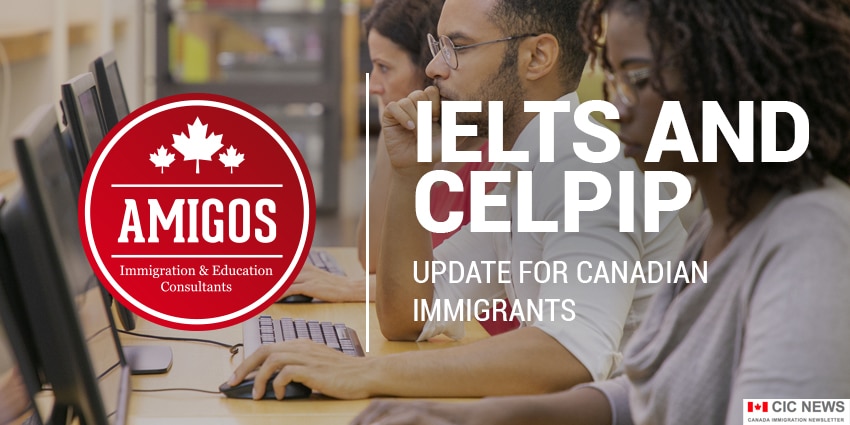
START UP FOR ENTREPRENEURS
An Innovative Approach to Economy Class Immigration
Canada seeks innovative entrepreneurs who have the potential to build dynamic societies that can compete on a global scale. The Start-Up Visa Program will link immigrant entrepreneurs with experienced private sector organizations that have experience working with business start-ups.
The “Start-Up Visa” program for entrepreneurs has been in force since April 1, 2013. The objective is to open the doors to entrepreneurial, innovative and creative immigrants who are willing to start a company in Canada, through a fund investment.
In addition, it seeks to position Canada as the new place for innovation and development, attracting immigrants with high creative and business potential, who can create jobs and generate a real impact on the Canadian economy.
The idea is that entrepreneurial immigrants who have a business plan come into contact with a group of Canadian investors who manage venture capital funds, who will evaluate the project.
The pilot program will last up to five years. Citizenship and Immigration Canada (CIC) expects that due to limited demand for the program, the number of applications will initially be limited. However, the focus of the Start-Up Visa will be on the quality of the applicants and establishing a track record of success, so the program can be scaled up quickly to meet what is expected to be growing demand. If the program is successful during the five-year trial period, CIC may formally file it as a new economy class under the IRPA.
Program Benefits
The Start-Up Visa Program will enable immigrant entrepreneurs to launch innovative businesses that will create jobs in Canada, and over time, compete globally.
The Program will provide entrepreneurs with valuable help in navigating the Canadian business environment that can sometimes be difficult for newcomers.
The program will provide private sector companies with access to a broader range of entrepreneurs, including the best and brightest minds from around the world.
Program Partners
Initially, Venture Capital of Canada and the Private Equity Association and the National Angel Capital Organization will be active partners in the Program.
CIC continues to work with the Canadian Business Incubation Association to include it in the program as soon as possible.
These general agreements of organizations – through CIC – will recommend which of their members should be designated as eligible to participate in the Start-Up Visa Program, establishing expert review groups to assist CIC officials in determinations of the cases and give assurances that industry standards and due diligence were followed.
The process of designating Canadian angel investor groups and venture capital funds will be eligible to participate in the Visa Start-Up program.
The process of designating Canadian business incubators that will be eligible to participate in the initial Visa Start-Up process will begin at a later date.
Requests
Foreign entrepreneurs will require the support of a Canadian angel investor group or business incubator, venture capital fund before they can apply to the Start-Up visa program.
Foreign businessmen will also have to meet criteria of linguistic competence and academic qualifications. The full set of criteria can be provided to you by Immigrate to Canada.
Inquiries
CIC collaborated with industry associations representing organizations that work with entrepreneurs, such as Canadian business incubators, angel investor groups, and venture capital funds. CIC also consulted with provinces and territories throughout the program development process.
Application for a Start-Up Visa
To submit an application for a “Start-Up Visa”, the entrepreneur must have the approval of the business plan by one of the investing organizations listed in the program.
The investment commitment of a venture capital fund (“Venture Capital Funds”) must be at least 200 thousand dollars. For its part, a group of investors (“Angel Investor Groups”) must guarantee a minimum capital of $75,000.
To prove the competences in the English language, the results of the CELPIP exams (where a minimum result of 3L must be obtained) and the IELTS (where a minimum result of 5.0 points must be obtained) are accepted.
To prove proficiency in the French language, the results of the TEF are accepted (where a minimum result of 225 points must be obtained in oral and written production; 180 points in oral comprehension; and 150 points in written comprehension).
The entrepreneur
The entrepreneur must also prove that they have sufficient funds to cover installation and living expenses in Canada.
The government will require a minimum of $
11,115 for a single candidate;
$13,837 for a candidate accompanied by a family member;
$17,011 for an entrepreneur with two companions;
$20,654 for a candidate with three companions;
$23,425 for an immigrant and four family members;
$26,419 for a candidate and five companions;
and $29,414 for an immigrant accompanied by six or more family members.
Authorities will also require applicants to undergo medical examinations and criminal record checks.
Some administrative fees will also be required ($1,050 for the main applicant; $550 for each family member over the age of 22; and $150 for each family member under the age of 22.)


